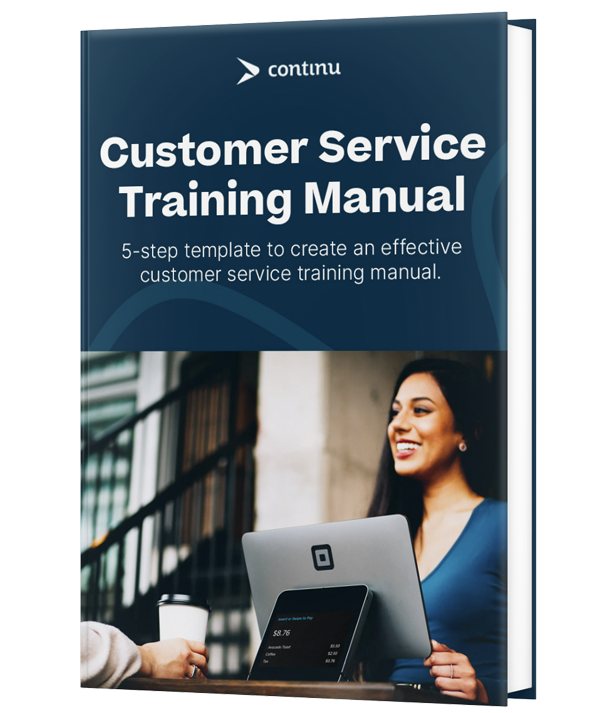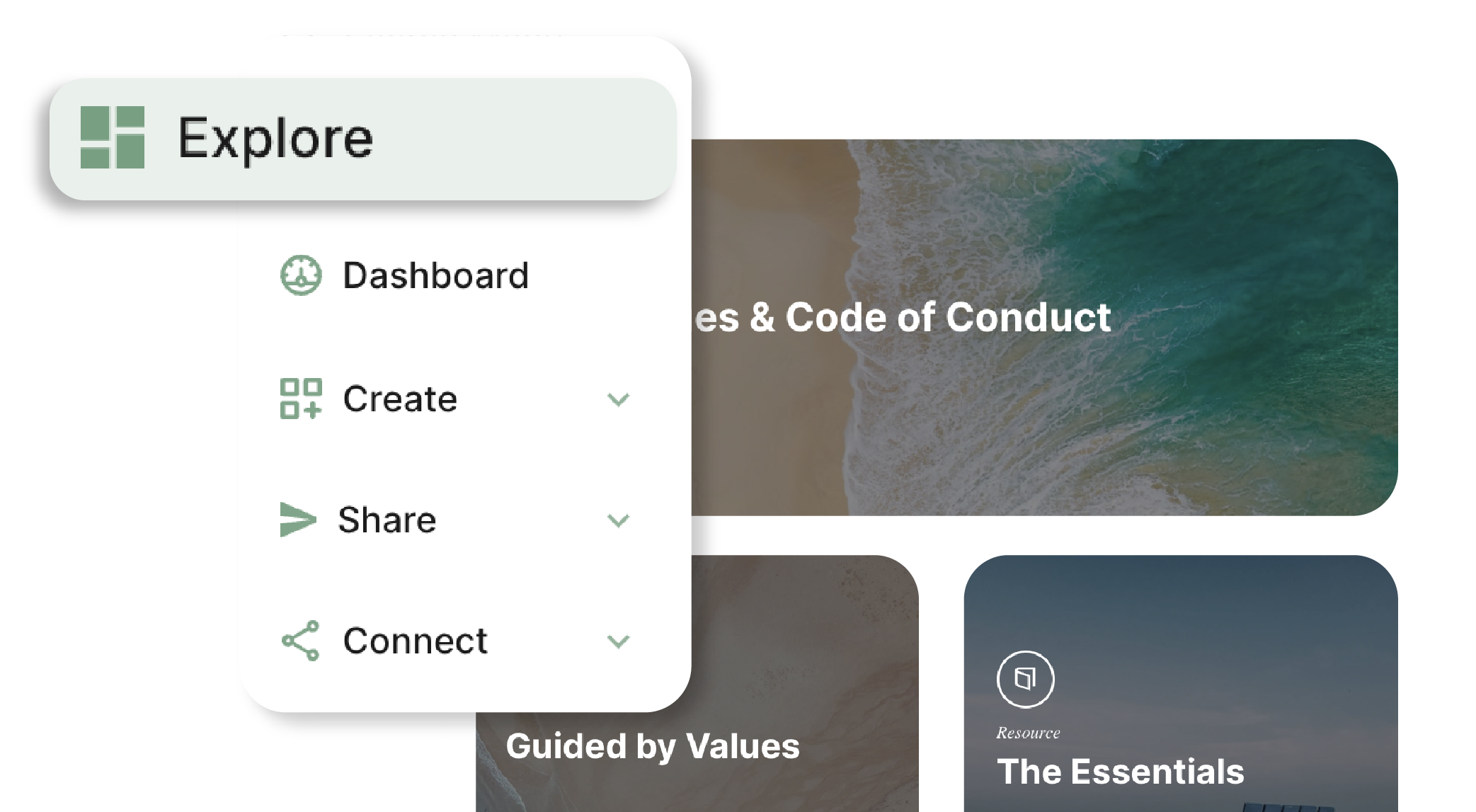Explore the essentials of customer service training tailored for healthcare professionals, ensuring patient satisfaction and trust.
It can be a hassle for patients to call and schedule appointments for healthcare services. After they get an appointment, patients are rushed through their visit leaving them with more questions than they came in with.
But what can be done to remedy these issues? Implementing great customer service training for healthcare professionals.
Proper training techniques and simulations will go a long way for great patient/provider relationships. Plus, it will make for a happier work environment for your healthcare employees.
Let's look at ways to improve customer service for healthcare professionals and the benefits organizations can receive.
How to provide customer service training for healthcare professionals
In order for healthcare professionals to create a fantastic patient experience, they will have to go through customer service training. A training program focused on customer service will enable your health professionals to improve their skills, practice active listening, and create happy customers.
Here are six ways to improve your healthcare customer service training program:
- Put customers first
- Observe customer service in action
- Conduct a training analysis
- Develop training materials
- Use contextual learning for training
- Evaluate your training method
1. Put customers first
Before you can train your healthcare employees in customer service, you need to think of your patients as “customers”. Ask yourself questions like:
- “What do our patients want?”
- “What keeps people coming back to our company?”
If you are not sure of these answers, simply ask your customers. The best way to find out what customer service problems need to be addressed is straight from the source, your patients.
Now, you can incorporate these learning strategies into your program.
2. Observe customer service in action
Once you have a firm grasp of what your customers want, look at your employees. Are they providing what is being asked of them?
A good way to judge this is by observing their behavior. Listen in on a few phone calls and sit in on face-to-face interactions between your employees and your patients. Are there areas for improvement? Do certain employees possess necessary skills that others do not?
Doing so will unlock gaps in skills between employees which can be a focal point for their learning path.
3. Conduct a training needs analysis
So you have the customer service challenges noted by your patients and the skills that employees need to be trained on. You can perform a training needs analysis to compile all the information together and construct the blueprint of your healthcare customer service training plan.
This will highlight all of the aspects of training that allow your customer service reps to perform their job effectively. The ADDIE model of training is a great framework to quickly putting together a prototype program.
4. Develop training materials
The learning resources you create for your course are some of the most important aspects of training healthcare professionals in customer service. Be sure to take the time to develop training materials that teach employees the skills and knowledge to improve their customer service.
Each part of your healthcare customer service training program should have a corresponding training material that solves the problem. These resources need to allow employees to slowly progress through your course and align with business goals.
5. Use contextual learning for training
After you’ve figured out what skills need to be taught and the materials are created, start building your training plan. Create learning objectives that meet each customer service weakness. Then use an ideal learning style for customer service training for healthcare professionals.
Contextual learning is a great one to use. Basically, this style of learning utilizes role-playing as a group. Healthcare professionals will act out scenarios and be judged on how they react.
Your healthcare customer service agents will use what they've learned and practice in real-world situations.
6. Evaluate your training method
Last, but certainly not least important is evaluation. Feedback is critical to your training program’s success. Let your employees weigh in by having them provide feedback on how they feel the training is working. Are they better equipped to deal with patients?
Give your patients surveys on how their customer service experience was. Create a comment card or ask patients via a web survey how they would rate your customer service. Also, look at indirect feedback like ratings given to you on third-party healthcare websites.
Write down the areas for improvement mentioned. Then use this to revise your training program to address any problems that are still noticeable and not originally trained.
Training is a continuous process, so feedback and evaluation allow you to constantly tweak your customer service training for healthcare professionals.
Customer Service Training Manual
So what are some of the other benefits to customer service training for healthcare professionals?
Benefits to customer service training in healthcare
The healthcare industry is a tough, exhausting, fast-paced, and patient-focused industry. It requires healthcare professionals to not only perform their job duties effectively but also provide exceptional customer service to patients.
These patients can also be considered customers as they are coming to you for expert help on health-related issues. So, improving your customer service training in healthcare initiatives can yield the following benefits:
More engaged employees - Customer service training in healthcare can help these employees see how their roles benefit the organization and most importantly, their patients.
Secure future - All employees want to grow and expand their skills over time. If you provide customer service training, employees are motivated to stay with your organization and feel they have the tools to meet the customer or patient demands.
Increase everyone’s strengths - Customer service training for healthcare professionals brings everyone up to speed. Courses can cover communication, listening, problem-solving, and organizational skills.
Retaining patients - If patients are not satisfied with their care, they will take their business elsewhere. But great customer service training for healthcare professionals can ensure lifelong satisfied patients.
Increased profit - Healthcare customer service training can help improve your organization's bottom line. Training your employees improves retention rates and reduces the amount of new hire training costs.
Activities for a healthcare customer service training program
Once you have a plan in place for rolling out customer service training for your healthcare professionals, what are the best activities to instill information? You want training to be effective, but you also want your employees to enjoy the process.
Here are some activities to incorporate into your healthcare customer service training program:
- Role-playing
- Mock phone calls
- Adding gamification
- Memory games
- Single topic training sessions
- Reward ongoing training
- Involve management
Role-playing - Set up customer service scenarios with your employees and see how they react to tough interactions with patients or ideal ways to handle situations.
Mock phone calls - In a customer service job, you must be able to perform well over the phone. If your employees use the phone frequently with patients, set up mock phone calls. Go over skills like the correct tone, using clear words, and a pitch that is pleasant.
Add gamification - Consider adding gamification to your customer service training. Include interactive quizzes, games, and other training vehicles with rewards for completing the various levels.
Memory games - Employees need to memorize a series of names. This will help healthcare professionals have a better “bedside manner” and other employees better connect with customers on a personal level. Customers will feel more like people and less like numbers.
Single topic training sessions - If there is a particular area of improvement you can pinpoint, build a training session around it. Hold a training session just on this topic. Have your employees bring a real-life example to the session.
Reward ongoing training - In order to incentivize these healthcare professionals to use their training, create an award system. Awards can be anything from a formal system to a simple gift card when you notice an employee using their new training on the job.
Involve management - When holding particular training sessions, it’s a great opportunity to have managers attend some of these. You want your healthcare professionals to feel their superiors support their customer service training.
Using an LMS for healthcare customer service training
One of the best ways to create a customer service training program for healthcare professionals is through the use of a modern learning management system. Legacy learning systems simply allow you to share content created elsewhere without the ability to track or report on training progress.
Switching to a Learning Amplification Platform™ like Continu will unlock powerful features and solutions, such as:
- All-in-one employee training, learning and development solution
- Create entire training programs in a single platform
- Track and measure employee training progress
- Generate detailed reports on training metrics
- Share training content anywhere, anytime, with anyone












